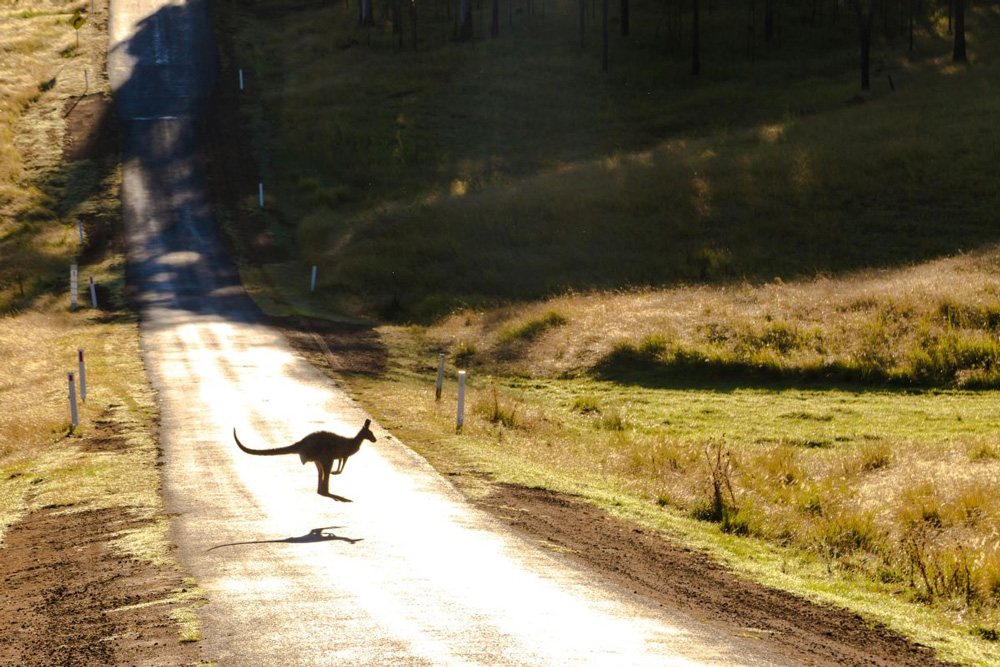
Staying Safe While Travelling in Australia
Life on the road can take you to beautiful places, especially when you have a fishing rod and know how to use it. Australia is a vast continent that experiences all extremes of weather, terrain, and aquatic conditions. It is a beautiful land, but it can also be a very harsh environment for the unwitting traveller who often has little understanding of its many dangers.
Animals, insects, spiders, snakes, ants, leeches; ferals like wild boar, buffalo and wild dogs, plus our marine life, including crocodiles, sharks, and jellyfish, are well-documented travel health concerns. In fact, it seems that in nearly every destination in Australia, something wants to sting, bite, or even eat you!
Whether you're from Australia like I am or travelling overseas to Australia for the first time, preparation is the way to stay healthy and reduce the risk of illness, infectious diseases, or other health concerns.
Preparation and Education
I have been most concerned by people’s ignorance of personal health issues, including medical emergencies in remote destinations. You need a good stock of personal medications before you travel to remote areas. It's worth talking to your local doctor before you leave home to ensure you have enough medicine and even update travel vaccinations according to the region of intended travel. Remember that there aren't too many chemists and doctors available in the outback or idyllic remote destinations.
I am incredibly thankful that while I am a big bloke, I generally enjoy good health, except maybe when one or two dozen too many oysters bring on the cursed gout! However, I am allergic to penicillin, and that can prove fatal in the wrong conditions. Hence, I always travel with a good stock of non-allergenic general antibiotics to fight those unexpected infections.
Microorganisms proliferate in warm weather, especially when combined with the humidity in the tropics. Any lesion, even the most minor mozzy bite or cut, can quickly cause infection. The key is avoidance rather than remedy, or in other words, avoiding the bites or abrasions in the first place and not trying to treat them afterwards.
Sandflies, midges, and accidents often occur when least expected, so prior preparation with appropriate medicine to fight infection is essential. So, too, is a good first aid kit and knowing how to use it with proper medical care. Consider a first aid course; it may just come in handy. For those who have completed a first aid course in the past, a refresher course is an excellent idea, as many methods change over time. For those that haven’t done one, do it now! You never know when you will need it while travelling. The life you save may well be your own!
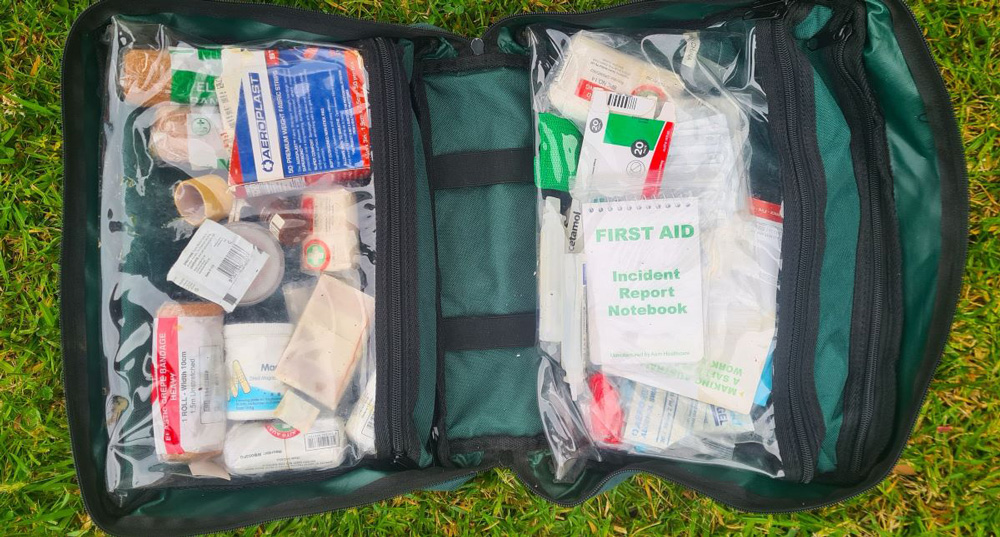
Prevention is Better than Dealing with a Cure
We constantly hear the old arguments over successful methods to ward off insect bites and their treatment. Many people are concerned with the adverse health effects of insect repellents, particularly from chemicals directly on their skin. I understand the concern, but to be quite frank when the bities are about, I’ll use them all!
On more than one occasion, I have had to cut long-anticipated trips short because my fellow travellers didn’t use enough repellant and ended up with massive infections leading to cellulitis, a very painful and dangerous consequence of infection that needs to be fought with strong antibiotics. Prevention is always better than cure. Protective clothing, midge-proof flyscreens, insect nets, and teaching the kids to shut the caravan door are all essentials.
Health Risks from Spider and Snake Bites
Biting critters such as spiders, snakes and even scorpions are common in Australia. You just never know when a spider or scorpion has taken up residence in your clothing or sleeping bag, so some inspection is often rewarded. Ticks are a large problem in many areas, and of course, snakes are prevalent in every state.
The key to bite treatment is identification and early treatment, but care varies considerably between differing species. In other words, knowing what has bitten you is the key to medical treatment and this isn't always possible. You can't carry an anti-venom for every species either, but invariably, keeping calm and reducing movement will reduce the blood flow and resulting spread of the toxins. This is often used in conjunction with a tourniquet, but immediate medical care is advised for most events.
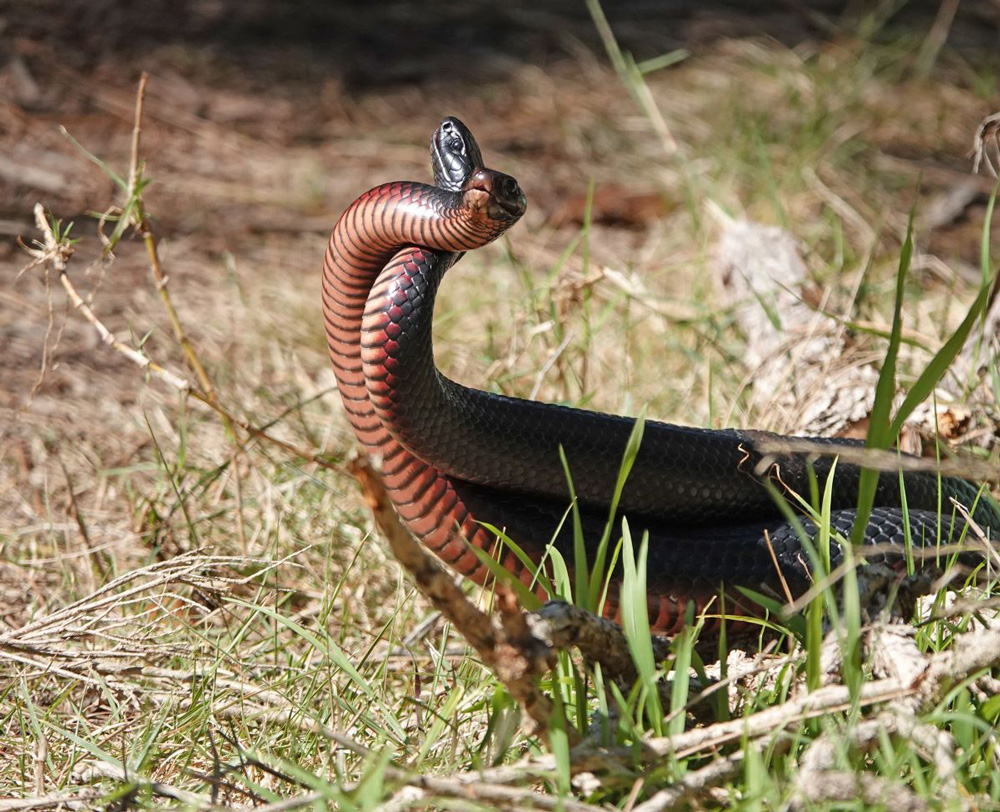
Antiseptics are also essential. Only recently I nearly lost a good friend to a puncture wound that got infected from play fighting with his dog. He ended up with a K9 microbe infection in his heart that was most difficult to fight. His doctor told him that the problem may not have had the chance to spread to his bloodstream if he had treated the wound immediately with a simple general antiseptic. No matter the wound, treat it seriously, particularly in remote areas.
Those with underlying health risks and conditions must maintain proper medicines and treatments and instruct travelling companions on using them in an emergency. Anyone who has witnessed a grand mal epileptic seizure knows the importance of companions keeping their airways open. Asthma attacks can become lethal very quickly without proper treatment. Heart attack is a leading cause of hospitalization and death in Australia, claiming on average 19 lives every day. Would YOU know how to react in such an emergency?
Fishos are continually at risk. Fishhooks, knives, lures, barnacle and oyster-encrusted rock shelves, slashing teeth, gills, and spines are all obvious threats. Even the humble flathead can inflict a very painful spike or slash, let alone the gruesome teeth of a barracoota, mackerel, or shark. Fish can not only have sharp teeth but may have poisonous spines such as the common gurnard. They are a rather pretty fish, but a sting from its spines can cause acute pain and even lead to cardiac arrest. I remember a relatively recent trip to an offshore reef when someone who was supposed to know better picked up a gurnard after being warned against it. The resulting sting ruined our whole day as we headed home with Mr. Know-it-all moaning in acute pain in the cabin of the boat!
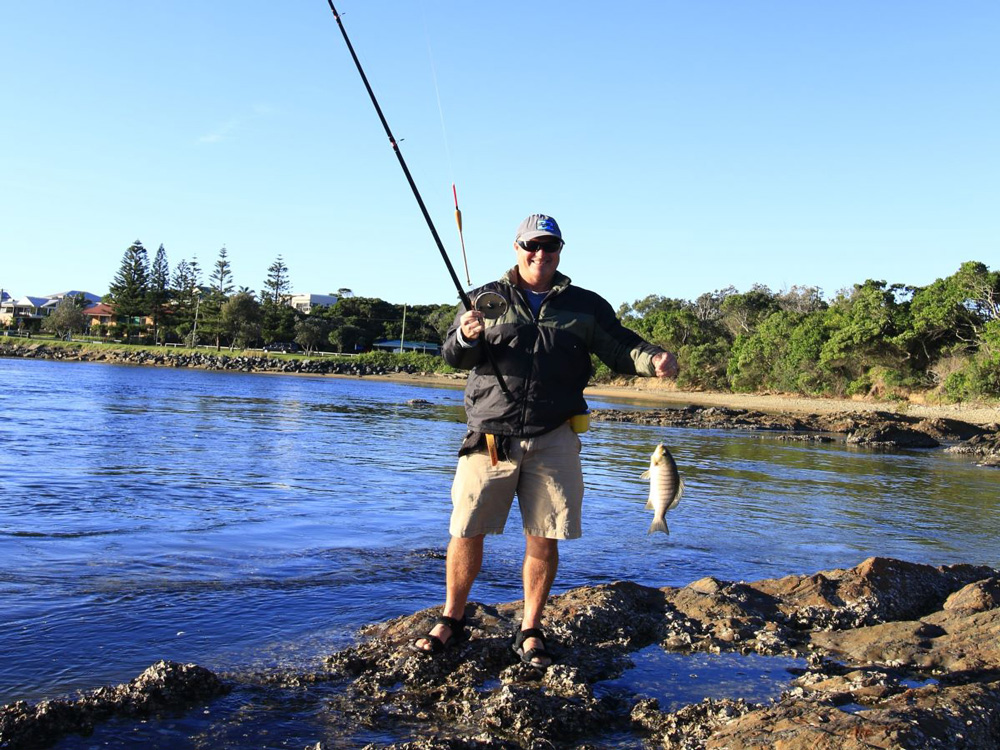
Listen to Travel Health Advice from the Locals
If you are advised about some health risk, particularly by a local, then listen, take advice, and err on the side of caution. Local travel health advice is priceless! Even old wife's tales often have an element of truth. We often put our lives in the hands of guides, or so-called guides. My old mate Baz and I were placed in a threatening situation on one of our treks to the top end when a so-called local expert misjudged the distance and conditions that we had to trek to reach a favorite fishing spot. We ran out of water in the tropical heat, slopped our way through muddy croc-filled mangroves, and nearly died of heat exhaustion before we finally made it back. We had no means of communication with the outside world and were around 100 km from any other human life. If nothing else, a personal EPIRB (Emergency Position Indicating Radio Beacon) and perhaps a satellite phone are great ideas in case the shit really hits the fan.
Don't Forget the Sunscreen
The sun can be a killer in so many ways. Hats, sunglasses, sensible protective clothing, and lashings of the strongest sunscreen you can find are essential parts of Australian life. If you can, it's also helpful to try to stay out of the sun during peak hours as much as possible. Save your longer outings for more overcast days, and remember that the sun can get you just as badly on a cloudy day if you're not careful.
A general understanding of the weather and basic forecasting are terrific lifelong tools. We now enjoy wonderful access to forecasting through the internet, so if available, use it. Watch for those very hot sunny days, but also storms you may need to prepare for or wait out until they pass.
A simple barometer and understanding how to use it can warn of impending bad weather. Yet nowadays you can use a comprehensive weather App or website, assuming you have cell signal!
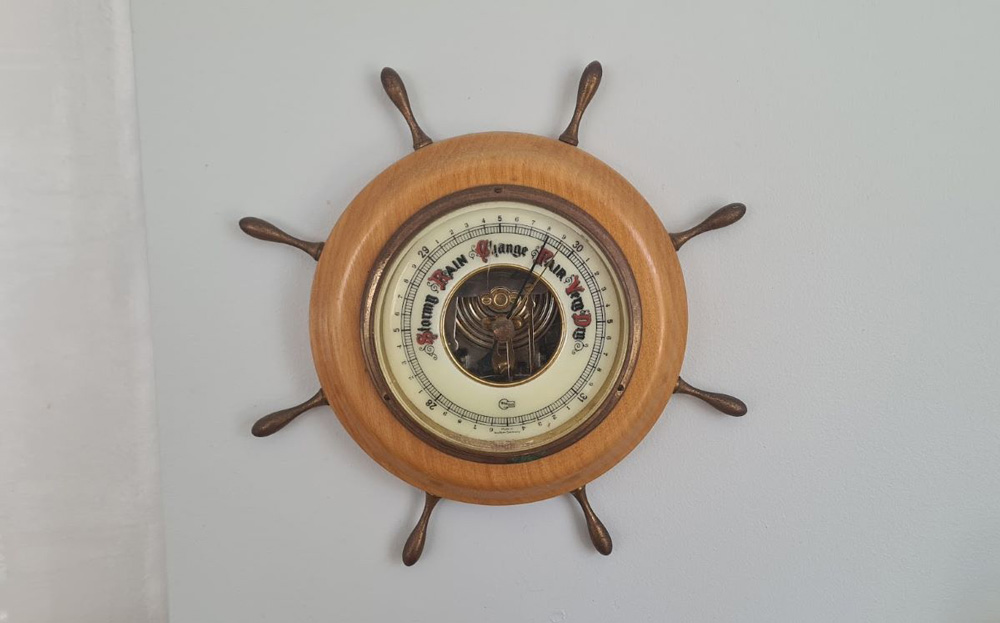
Staying Safe While Boating
Boats add a significant element of risk, both small and large. Your equipment should be well presented, maintained, and only used where conditions allow. The unexpected often happens in boats. I could write books from experiences; however, one that springs to mind is when a marlin speared a mate in the face, breaking a section of bill off under his cheekbone in a freak accident miles to sea over the continental shelf. Intelligent actions and good communication saved the angler and crew from much heartache. We regularly hear of accidents on inland lakes where strong winds can whip a broad section of water from a millpond to a washing machine in no time flat.

While shark attacks are reasonably infrequent, they are still on the rise in Australia. There are defined periods and locations of heightened risk to avoid, so this is something well ahead of time if you are planning to travel overseas to visit beaches in Australia.
Dealing with Allergies while Travelling
Some people find out the hard way that they may be allergic to simple items. Trees, pollens, seafood, bee stings, and even hot, dry winds are only a few of the allergies you may not be exposed to in your home environment yet react badly upon exposure. Antihistamines can help many sicknesses, particularly those caused by allergies. In more extreme cases, some travellers need to carry epinephrine injections in case of anaphylactic reactions.
Take Me to the River
Water is the key to life in our hot conditions in Australia. Carry twice as much as you think you will need to be safe as it’s amazing how quickly you run out when the mercury rises. Conversely, sudden wind chills are quite deadly in many environments. If you have ever been caught out in a sudden Antarctic gale on a high-country Tasmanian lake you will know all about it – as I have!
Drowning is yet another major danger in our island nation. It can occur in both salt water and fresh water, but mostly by ill-prepared tourists in unfamiliar waters. Obviously, swimming between the flags is fine for patrolled beaches, but many don't understand the motion of rips or what to do if caught in one. Even a tide change can affect suitable swimming conditions. Rivers can contain undertows and submerged logs, and even lakes can whip up unexpected rough conditions quickly.
The key is to learn how to swim and be sure of your ability and suitability before you take the plunge.
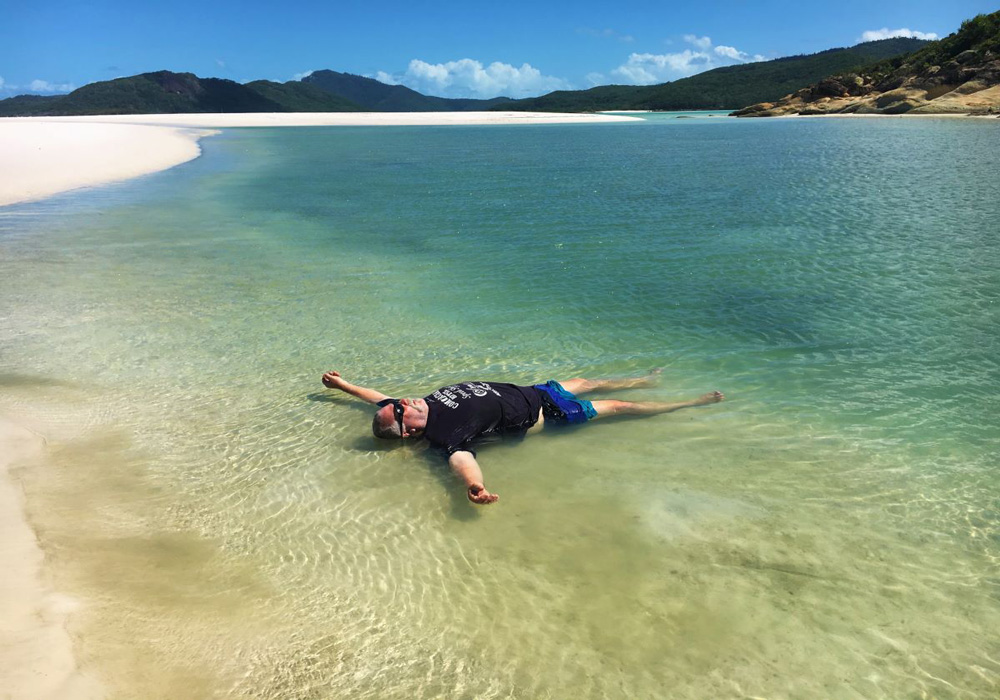
Common sense often isn't so common!
Common sense, good equipment, forecasting weather and conditions, and some precautionary medications ensure you stay safe and secure on that trip of a lifetime, or even a weekend escape to a close destination. Most of all knowing your own personal limitations and staying well within them is essential to coming home safely. From an angler's point of view, it’s far better to catch statistics than be one! Stay safe!
Found your perfect purchase? Let’s make financing just as easy!
Work with Australia’s best-reviewed finance broker for a great deal and a stress-free experience. With 2,500+ glowing Google reviews, you can trust you're in good hands! See what our happy customers say in Credit One reviews, or jump right in and crunch the numbers with our handy loan repayment calculator. Your ideal financing solution is just a few clicks away!